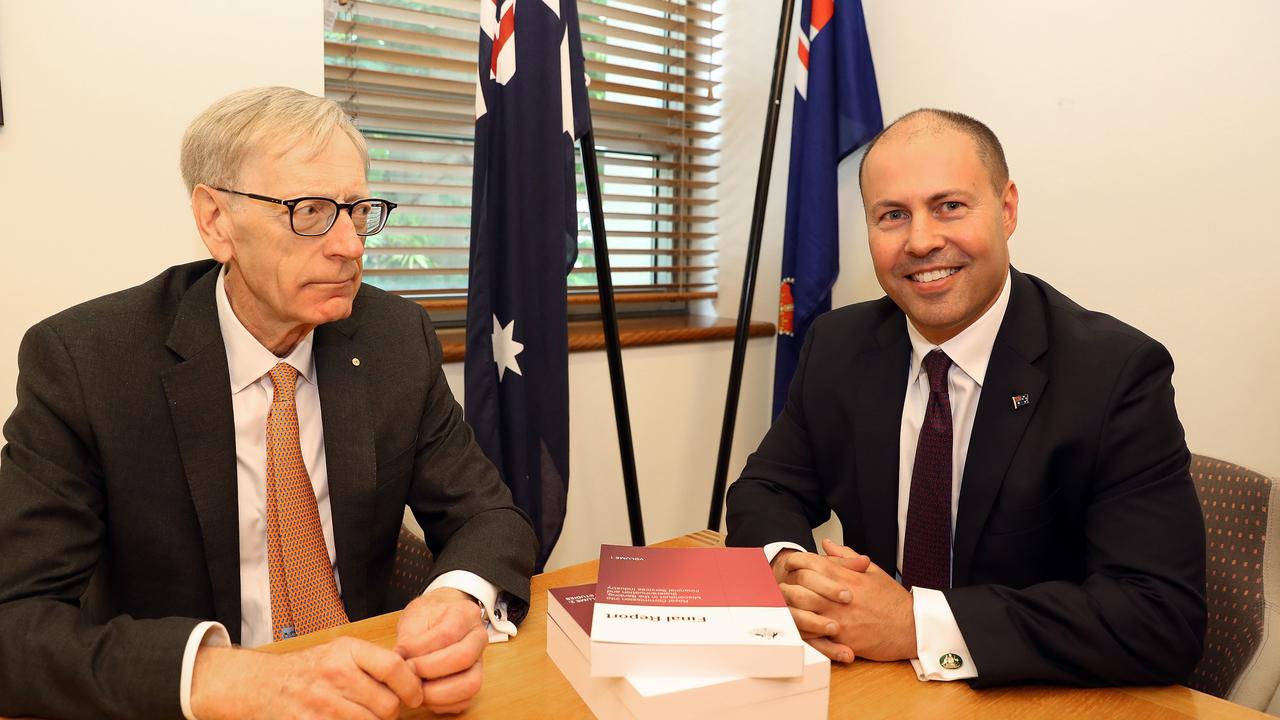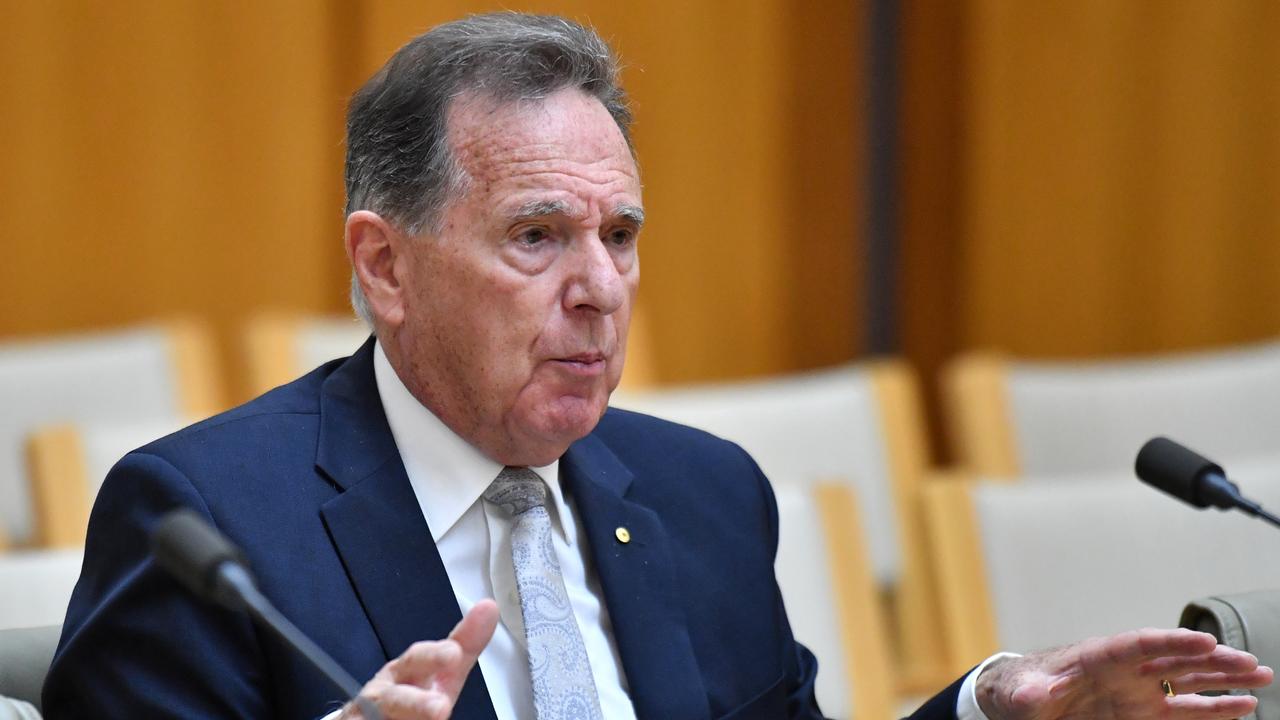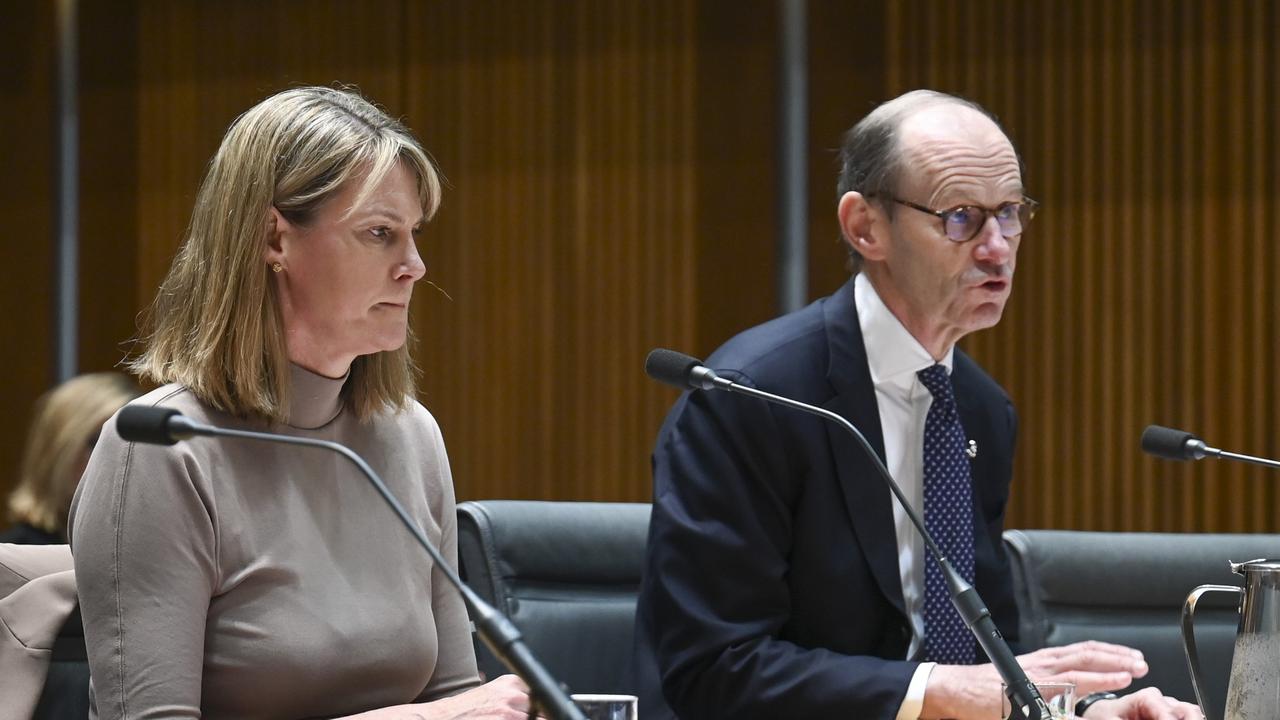Pressure grows on ANZ over allegations it withdrew fees from accounts of dead customers
Former ACCC chair Graeme Samuel says allegations ANZ took fees from accounts of dead customers suggest the bank learnt nothing from the Hayne royal commission’s findings.
Business
Don't miss out on the headlines from Business. Followed categories will be added to My News.
ANZ is facing growing pressure and criticism over allegations it wrongly pillaged the bank accounts of dead customers, and an architect of the nation’s regulatory reforms says the banking major has not learned the lessons of the past.
As revealed in The Australian, ANZ is the subject of an investigation by the corporate regulator over claims the bank wrongly charged thousands of dead customers account keeping and other retail banking fees it was not entitled to.
Sources said the Australian Securities and Investments Commission was considering enforcement action over ANZ’s alleged wrongful bilking of tens of thousands of customer accounts, despite in some cases being notified that they were dead.
This comes after the Banking Code Compliance Committee referred its findings about ANZ, after calling out the bank’s egregious charging of customers, to ASIC and the prudential regulator several months ago. Opposition Treasury spokesman Angus Taylor noted his concerns on Wednesday when asked about the issues at ANZ, saying the Coalition “expects all businesses to act in the best interests of their customers and meet all regulatory obligations”.

The ASIC investigation heaps pressure on the Shayne Elliott-led ANZ, which is holding its annual meeting in Melbourne on Thursday. Industry stakeholders say that the latest probe into the bank’s handling of fees charged to dead customers showed it had failed to fix its systems.
Separately, ANZ has said it expects several protesters to attempt to disrupt the AGM, the first opportunity shareholders have to vent over the recent regulatory woes at the bank.
Former competition regulatory tsar Graeme Samuel, who examined the prudential regulator in the wake of the 2018 Hayne royal commission into the banking sector’s misconduct, said ASIC’s probe highlighted ANZ had not learned from the past.
“They’ve forgotten what Hayne had to say and it’s going to take ASIC and the regulators wielding that scythe to make them remember,” Mr Samuel said.
Both AMP and Westpac were among financial services companies savaged by ASIC in the wash-up of the royal commission, with the pair fined a collective $64m for charging deceased customers.
Kenneth Hayne declined to comment when asked about the latest allegations concerning ANZ.
In his 2019 report, Mr Hayne told the banks that charging dead customers fees exposed them to possible breaches of the Corporations Act and potential penalties of up to 10 per cent of their total turnover during the year in which the offending began, or 45,000 penalty units.
“I cannot imagine why post-Hayne and the rulings some of them were placed under (the banks) didn’t all say we better get ourselves right here and get the culture right and our systems changed,” Mr Samuel said.

“The fact they haven’t done it leaves me in a state of bewilderment.”
Mr Samuel steered a review of the Australian Prudential Regulation Authority, a key banking sector regulator, and was also part of a panel that investigated Commonwealth Bank’s culture.
Mr Samuel said ANZ had been “lulled into a sense of complacency” by the lack of action from ASIC and APRA over recent breaches in the banking sector.
“The enforcement and compliance side is only starting to be swung quite pointedly and that’s what we need,” he said.
APRA recently handed ANZ an additional $250m capital penalty over its handling of non-financial risks, amid longstanding concern that the bank was not taking the issues seriously.
That came after ASIC revealed it was investigating ANZ over alleged market manipulation relating to a $14bn government bond issuance last year.
The regulator is also reviewing ANZ’s provision of data to the Australian Office of Financial Management.
APRA ordered ANZ conduct a review, and it has drafted Oliver Wyman consultants to assess its compliance and governance culture.
Consumer Policy Research Centre CEO Erin Turner said the issue around underinvestment by banks was broader than just ANZ, adding that charging fees to dead customers “shouldn’t still be happening”.

“I don’t know how that board of the bank hasn’t looked closely at this,” Ms Turner said. “The challenge of stopping fees shouldn’t be a problem for banks.”
University of Wollongong law associate professor Andy Schmulow said it was outrageous that ANZ could still be charging dead customers fees.
“You can’t tell me six years after the Hayne royal commission that computer says no,” he said. “Part of the reason computer says no is ANZ doesn’t want to spend money on their computers.”
Dr Schmulow also took aim at ANZ’s board handing the bank’s retail boss Maile Carnegie a $865,000 bonus this year, saying it was a “slap in the face of good corporate governance”.
MST Marquee analyst Brian Johnson said further regulatory issues at ANZ had serious potential implications for the bank.
“ANZ faces a challenging AGM on Thursday given proxy advisers’ votes over remuneration versus the reputational damage flowing from the ongoing ASIC investigation for alleged bond manipulation,” Mr Johnson said.
“Any further regulatory problems could yet result in significant penalties, a further uplift in regulatory risk capital, an uplift in regulatory and compliance costs and distraction for ANZ management which is important given the Suncorp Bank integration and the ANZ Plus migration strategy.”

The Finance Sector Union, which represents a proportion of ANZ staff, said it was concerned to see the bank was under investigation by ASIC for charging fees to customers who had died.
FSU national president Wendy Streets said if proved, the union would “support strong action and remediation to ensure no estates are out of pocket”.
“Our members work every day at ANZ and throughout the sector to put customers first,” she said.
“Reports like these are distressing to bank workers who are often the people left explaining why systems and processes set up by banks aren’t working in the interests of customers.”
The BCCC, in its findings about ANZ’s failures earlier this year, said ANZ was also significantly delayed in responding to customers.
Ms Streets said she was concerned the delays showed the impact of a lack of staffing at ANZ. She said the reports highlighted the need for banks to “ have sufficient trained staff available”.
More Coverage
Originally published as Pressure grows on ANZ over allegations it withdrew fees from accounts of dead customers








